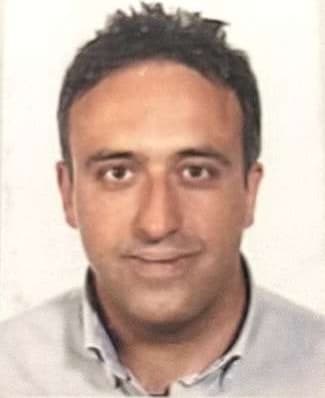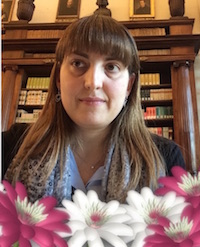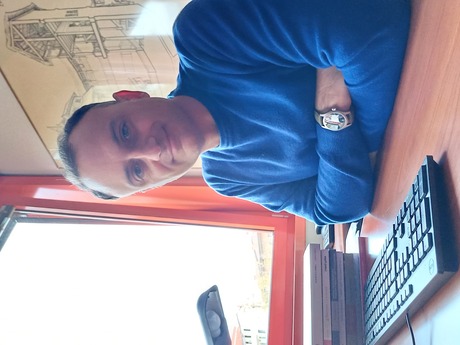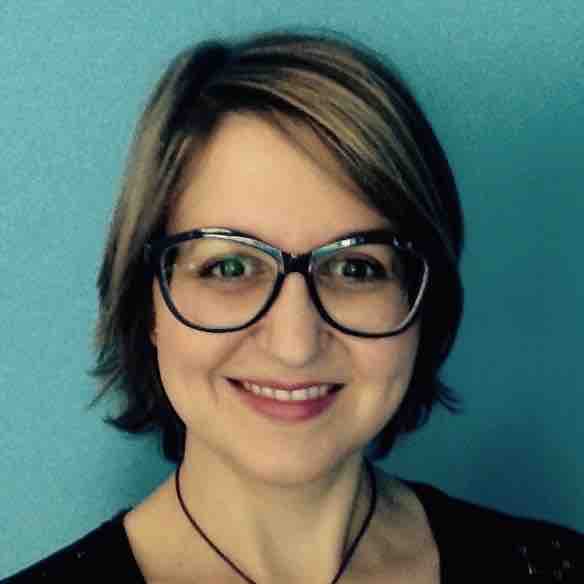Studying at the University of Verona
Here you can find information on the organisational aspects of the Programme, lecture timetables, learning activities and useful contact details for your time at the University, from enrolment to graduation.
Academic calendar
The academic calendar shows the deadlines and scheduled events that are relevant to students, teaching and technical-administrative staff of the University. Public holidays and University closures are also indicated. The academic year normally begins on 1 October each year and ends on 30 September of the following year.
Course calendar
The Academic Calendar sets out the degree programme lecture and exam timetables, as well as the relevant university closure dates..
| Period | From | To |
|---|---|---|
| I semestre (Lingue e letterature straniere) | Sep 28, 2020 | Jan 9, 2021 |
| II semestre (Lingue e letterature straniere) | Feb 15, 2021 | May 29, 2021 |
| Session | From | To |
|---|---|---|
| ESAMI LINGUE - sessione invernale | Jan 11, 2021 | Feb 13, 2021 |
| ESAMI LINGUE - sessione estiva | May 31, 2021 | Jul 24, 2021 |
| ESAMI LINGUE - sessione autunnale | Aug 30, 2021 | Sep 25, 2021 |
| Session | From | To |
|---|---|---|
| LAUREE LINGUE - sessione autunnale (a.a. 2019/20) | Nov 2, 2020 | Nov 7, 2020 |
| LAUREE LINGUE - sessione straordinaria (a.a. 2019/20) | Apr 7, 2021 | Apr 13, 2021 |
| LAUREE LINGUE - sessione estiva (a.a. 2020/21) | Jul 5, 2021 | Jul 10, 2021 |
| Period | From | To |
|---|---|---|
| Festa di Ognissanti | Nov 1, 2020 | Nov 1, 2020 |
| Festa dell'Immacolata | Dec 8, 2020 | Dec 8, 2020 |
| Festa della liberazione | Apr 25, 2021 | Apr 25, 2021 |
| Festa del lavoro | May 1, 2021 | May 1, 2021 |
| Festa del Santo Patrono | May 21, 2021 | May 21, 2021 |
| Festa della Repubblica | Jun 2, 2021 | Jun 2, 2021 |
Exam calendar
Exam dates and rounds are managed by the relevant Foreign Languages and Literatures Teaching and Student Services Unit.
To view all the exam sessions available, please use the Exam dashboard on ESSE3.
If you forgot your login details or have problems logging in, please contact the relevant IT HelpDesk, or check the login details recovery web page.
Should you have any doubts or questions, please check the Enrollment FAQs
Academic staff
 silvia.baroni@univr.it
silvia.baroni@univr.it
 stella.merlin@univr.it
stella.merlin@univr.it
 sara.paolini@univr.it
sara.paolini@univr.it
 massimo.scotti@univr.it
massimo.scotti@univr.it
Study Plan
The Study Plan includes all modules, teaching and learning activities that each student will need to undertake during their time at the University.
Please select your Study Plan based on your enrollment year.
1° Year
| Modules | Credits | TAF | SSD |
|---|
1st foreign language2nd foreign language1st foreign literature2nd foreign literature1 module to be chosen between the following2° Year activated in the A.Y. 2021/2022
| Modules | Credits | TAF | SSD |
|---|
1st foreign language2nd foreign language1st foreign literature2nd foreign literature1 module to be chosen between the following3° Year activated in the A.Y. 2022/2023
| Modules | Credits | TAF | SSD |
|---|
1st foreign language2nd foreign language1st foreign literature2nd foreign literature1 module among the following (philology related to 1st or 2nd foreign language)1 module between the following| Modules | Credits | TAF | SSD |
|---|
1st foreign language2nd foreign language1st foreign literature2nd foreign literature1 module to be chosen between the following| Modules | Credits | TAF | SSD |
|---|
1st foreign language2nd foreign language1st foreign literature2nd foreign literature1 module to be chosen between the following| Modules | Credits | TAF | SSD |
|---|
1st foreign language2nd foreign language1st foreign literature2nd foreign literature1 module among the following (philology related to 1st or 2nd foreign language)1 module between the following| Modules | Credits | TAF | SSD |
|---|
Legend | Type of training activity (TTA)
TAF (Type of Educational Activity) All courses and activities are classified into different types of educational activities, indicated by a letter.
Introduction to Spanish Linguistics (2021/2022)
Teaching code
4S002964
Academic staff
Coordinator
Credits
6
Language
Spanish
Scientific Disciplinary Sector (SSD)
L-LIN/07 - LANGUAGE AND TRANSLATION - SPANISH
Period
II semestre (Lingue e letterature straniere) dal Feb 14, 2022 al May 28, 2022.
Learning outcomes
The course aims to consolidate the knowledge of aspects of the tradition of linguistic research in the Hispanic context.
At the end of the course students:
– should know the basics of theoretical models to account for linguistic phenomena related to Spanish in a synchronic or diachronic perspective;
– will apply these models to written and oral texts in Spanish, proving to be able to organize the aspects studied in a systematic manner.
Program
The course will begin by studying the history of the reflection on phraseology and paremiology, from its beginnings to its formation, now in the 20th century, as the linguistic discipline of Phraseology. The fundamental characteristics of the most relevant phraseological traditions (Soviet, German, French and Anglo-Saxon) will also be explained.
Secondly, the fundamental theoretical and epistemological aspects of the discipline of phraseology will be set out, with regard to its terminology, its basic concepts and the classification and description of its units, with particular emphasis on the units known as locutions and collocations.
Phraseology constitutes one of the linguistic disciplines with the greatest projection today, largely due to the multidisciplinary nature of its object of description. Therefore, examples of analysis of the Spanish phraseological component from different models, disciplines and approaches (morphology, syntax, word formation, dialectology, sociolinguistics, lexicography, pragmalinguistics, terminology, linguistic historiography, cognitive linguistics) will be presented. Students will be presented with new ways of investigating Spanish phraseology along these lines, in order to carry out theoretical, descriptive or applied work.
Students will be able to
- apply the knowledge necessary to identify phraseological units, with respect to other linguistic components (words, syntagmas, etc.)
- evaluate the historical conformation of the discipline of phraseology and analyse its relationship with the rest of the current linguistic disciplines (grammar, pragmatics, lexicology, cognitivism)
- apply tools for the contrastive analysis of phraseology
- formulate hypotheses and research questions on synchronic and diachronic aspects of phraseology
- use linguistic corpora and databases to analyse phraseological phenomena
- research bibliographic sources and resources for the study of phraseology.
The course includes frontal lessons dedicated to the following topics:
First part (Prof. Montoro del Arco)
1. Introduction. Basic terms and concepts of phraseology
2. Historiography of phraseology
3. Phraseology and variation
4. Phraseology and phraseography
5. Phraseology, semantics and pragmatics
6. Principles of contrastive phraseology
Second part (Prof. Dalle Pezze)
7. Diachronic phraseology
8. Phraseology and Spanish L2
In addition to the contents taught in class, there will be practical analysis of written and oral documents that will allow the theoretical concepts taught in class to be understood and applied, and lexicographic work using dictionaries and other online resources. This will be complemented by critical reading of some key texts.
Bibliography
Examination Methods
The exam consists of an oral test on theoretical and practical questions relating to the course syllabus, the compulsory reading list and the teaching materials provided. For students who do not attend class, the syllabus and form of assessment are the same.
Type D and Type F activities
To discover all the teaching activities accredited by the foreign teaching college click here
Career prospects
Module/Programme news
News for students
There you will find information, resources and services useful during your time at the University (Student’s exam record, your study plan on ESSE3, Distance Learning courses, university email account, office forms, administrative procedures, etc.). You can log into MyUnivr with your GIA login details: only in this way will you be able to receive notification of all the notices from your teachers and your secretariat via email and soon also via the Univr app.
Student login and resources
Gestione carriere
Assegnazione tutore
Attività accreditate D/F
Calendario didattico dettagliato
Cambio lingua curriculare
Competenze informatiche
Competenze linguistiche (prima e seconda lingua)
Competenze linguistiche in triennale (terza lingua CFU F)
Compilazione del piano didattico
Corso di Lingua portoghese
Erasmus+ e altre esperienze all'estero
Linguistic training CLA
Presentazione dei corsi di studio e Open day
Graduation
Saperi minimi
Stage e tirocini
Le attività di stage sono finalizzate a far acquisire allo studente una conoscenza diretta in settori di particolare interesse per l’inserimento nel mondo del lavoro e per l’acquisizione di abilità professionali specifiche.
Le attività di stage sono svolte sotto la diretta responsabilità di un singolo docente presso studi professionali, enti della pubblica amministrazione, aziende accreditate dall’Ateneo veronese.
I crediti maturati in seguito ad attività di stage saranno attribuiti secondo quanto disposto nel dettaglio dal “Regolamento d’Ateneo per il riconoscimento dei crediti maturati negli stage universitari” vigente.
- Tutte le informazioni in merito agli stage per futuri studenti sono disponibili alla pagina Stage e tirocini.
- Tutte le informazioni in merito agli stage per studenti iscritti sono pubblicate in MyUnivr - come fare per - stage e tirocini.
- Tutte le informazioni in merito agli stage per le aziende sono disponili alla pagina Stage e tirocini per azienze.
Ulteriori informazioni al seguente link https://www.univr.it/it/i-nostri-servizi/gestione-carriere-studenti-lingue-e-letterature-straniere/stage-e-tirocini-lingue-e-letterature-straniere

 +39 045802 8409
+39 045802 8409
















































